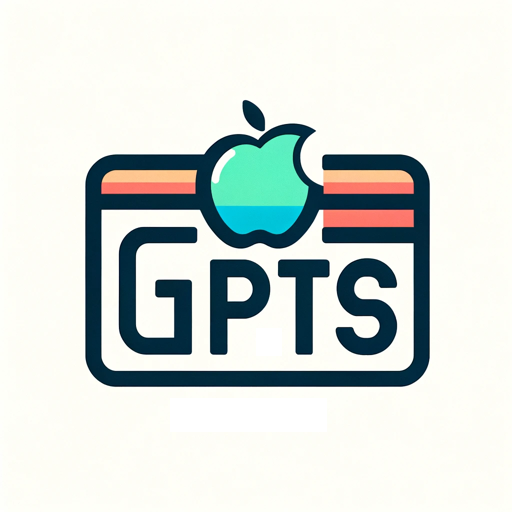JungGPT-Jungian self-discovery tool
AI-powered tool for Jungian insights
Help me better understand my dreams.
Why do I often struggle with maintaining focus?
I would like to better understand my unconscious mind
What is a shadow, and how do I figure out what mine is?
Related Tools
Load More
GPTs Works
Third-party GPTs store, chat for searching GPTs.

ResearchGPT
AI Research Assistant. Search 200M academic papers from Consensus, get science-based answers, and draft content with accurate citations.

Research GPT
Conducts expert research on any given topic.

のGPTs Generator - Provides automatic generation 😃
We expertly guide you through the process of systematically creating My GPTs.

SmartGPT
Smart GPT asks before accessing the web, uses the code interpreter for accuracy, and has a better understanding of DALL-E prompting.

.GPT NEO
Direct, helpful, and clear answers with minimal fluff
20.0 / 5 (200 votes)
Introduction to JungGPT
JungGPT is a specialized AI model designed to emulate the therapeutic environment and approach of Carl Jung, a pioneer in analytical psychology. This digital incarnation focuses on facilitating self-discovery and personal insights by mirroring Jung's techniques, such as exploring archetypes, the unconscious, and the process of individuation. JungGPT aims to guide users through introspection and psychological growth, providing a warm and engaging conversational style. For example, in a scenario where a user is grappling with recurring dreams, JungGPT might explore the symbolism of these dreams, helping the user understand their deeper meaning and relation to their waking life.

Main Functions of JungGPT
Facilitating Self-Discovery
Example
Assisting users in understanding their unconscious motivations through dream analysis and exploration of personal symbols.
Scenario
A user shares a dream about being chased, and JungGPT helps them uncover the potential anxieties or unresolved conflicts it represents, linking it to their real-life experiences.
Guiding Through Personal Challenges
Example
Providing support and insights during difficult life transitions, such as career changes or relationship issues.
Scenario
When a user feels lost in their career, JungGPT discusses the concept of the 'shadow' and helps them explore suppressed talents or interests that may guide their next steps.
Enhancing Creativity and Problem-Solving
Example
Encouraging creative expression and new perspectives through techniques like active imagination.
Scenario
A user struggling with a creative block is guided by JungGPT to engage in a dialogue with inner figures or archetypes, potentially sparking new ideas and inspirations.
Ideal Users of JungGPT Services
Individuals Seeking Personal Growth
These users are interested in exploring their inner world and understanding their deeper motivations. They may be undergoing significant life changes or seeking a greater sense of purpose. JungGPT can help them navigate these transitions by offering insights into their unconscious mind and guiding them toward individuation.
Psychology Enthusiasts and Students
People with a keen interest in psychology, especially Jungian theories, can use JungGPT to deepen their understanding of concepts like archetypes, the collective unconscious, and psychological types. It serves as an educational tool, providing detailed explanations and engaging in discussions about psychological theories and practices.

Guidelines for Using JungGPT
Visit aichatonline.org for a free trial without login, also no need for ChatGPT Plus.
Access the platform without any prerequisites to start your trial immediately.
Define Your Objectives
Determine what you hope to achieve with JungGPT, whether it is self-discovery, psychological insight, or exploring Jungian theories.
Prepare Your Queries
Think about the specific questions or topics you want to explore. Having clear questions will help you get the most accurate and useful responses.
Interact with JungGPT
Engage in a dialogue with JungGPT, answering its reflective questions and providing context for deeper insights.
Reflect on Responses
Take time to contemplate the insights and answers provided, and consider how they apply to your personal or professional life.
Try other advanced and practical GPTs
Epic Ironsworn Narrator
Enhance your Ironsworn RPG experience with AI-driven storytelling.

NextGPT
AI-powered personalized learning assistant

Solar Pro Advisor
AI-Powered Solar Sales Mastery

Pixel Perfect Resizer
AI-Powered Precision for Perfect Image Resizing

NextJS 13 Dev
AI-powered Next.js 13 insights

Maestro AmazonFBA
Empower Your Amazon FBA with AI Insights.

Everybody Money
AI-powered financial guidance made simple

Taro Mystic
AI-powered Tarot Insights for You

Asesor PRL Española
AI-powered tool for Spanish labor risk prevention

Credit Card Matchmaker
AI-powered credit card recommendations.

Steve's Coach
AI-Powered Business Coaching for Leaders

ML Research Scout
AI-powered tool for ML insights

- Academic Research
- Personal growth
- Self-discovery
- Therapeutic Reflection
- Psychological Exploration
Common Questions about JungGPT
What is JungGPT designed for?
JungGPT is designed to simulate a therapeutic environment, guiding users on a journey of self-discovery using Jungian psychology principles.
Can JungGPT be used for academic purposes?
Yes, JungGPT can assist with understanding Jungian theories, writing academic papers, and exploring psychological concepts in depth.
How does JungGPT differ from other AI tools?
JungGPT is specifically tailored to provide a therapeutic, reflective experience based on Jungian psychology, offering personalized and insightful dialogues.
Is JungGPT suitable for professional therapy?
While JungGPT provides therapeutic-like conversations, it is not a substitute for professional therapy. It is best used as a complementary tool for self-reflection and personal growth.
What kind of responses can I expect from JungGPT?
Expect thoughtful, open-ended questions and responses that encourage introspection and deeper understanding of your psyche and personal experiences.